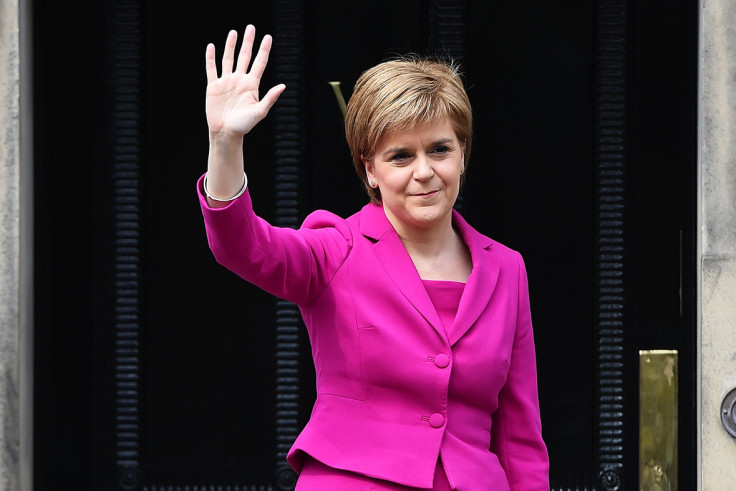First Minister Nicola Sturgeon reveals miscarriage tragedy for first time
Scotland's First Minister spoke out to challenge assumptions about childless women.

Nicola Sturgeon has spoken out for the first time, about suffering a miscarriage in 2011.
She said she hoped allowing her story to be shared in a new book might challenge assumptions and judgements made about women who do not have children.
The Scottish First Minister, 46, who has no children, revealed how she lost the baby in the first trimester of pregnancy when she was 40.
"There are many reasons why women don't have children," she said.
"Sometimes, for whatever reason, having a baby just doesn't happen – no matter how much we might want it to."
She also stated she hoped her admission would contribute to a future climate in which these matters are respected as entirely personal.
The book titled Scottish National Party Leaders tells how she lost the baby shortly before the 2011 Scottish parliamentary election campaign period.
Sturgeon, who is married to SNP chief executive Peter Murrell, was preparing to share the happy news when the miscarriage occurred.
However, author Mandy Rhodes revealed in The Sunday Times Magazine that instead of recovering from her loss privately at home, on 3 January, 2011, Sturgeon soldiered through her public engagements.
She attended the 40th anniversary of the Ibrox disaster, in which 66 Rangers football supporters were crushed to death, sharing in a service of commemorative grief.
Thanks for all your kind messages this morning. @PeterMurrell & I really appreciate it. 1/3
— Nicola Sturgeon (@NicolaSturgeon) September 4, 2016
In a statement released following the publication of the story, Sturgeon said: "This was obviously a painful experience for Peter and I and while Mandy has known about it for some time, she has always respected our decision not to talk about it publicly.
"I gave her the go ahead to make reference to it now in the hope that it might challenge some of the assumptions and judgements that are still made about women – especially in politics – who don't have children.
"There are many reasons why women don't have children. Some of us simply don't want to, some of us worry about the impact on our career – and there is still so much to do, through better childcare, more progressive working practices and more enlightened attitudes, to make sure we don't feel we have to choose.
"And sometimes, for whatever reason, having a baby just doesn't happen – no matter how much we might want it to.
She added: "For me, as for many women, all of these things have been true at different times of my life – the point is that judgements and assumptions shouldn't be made about what are personal choices and experiences."
© Copyright IBTimes 2024. All rights reserved.







